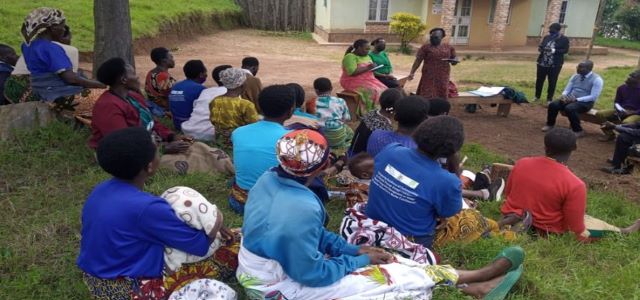A business case on economic and societal benefits using gender transformative approach was conducted and training of women as artisans in different rainwater harvesting technologies by Kigezi Diocese Water and Sanitation Programme (KDWSP) was one of the gender transformative case studies that was mapped and developed. In line with this, this case study is to be replicated under Gender transformative local demonstration project in relation to its objective to promote water harvesting and storage for improved water and food security while promoting gender equality in its access and control and through Roof rainwater harvesting and storage interventions. Its against this background that an engagement with KDSWP was conducted to discuss the partnership in the training of women artisans under the local demonstration project. KDWSP has a training Centre for training in rainwater harvesting technologies which MoWE has supported to its establishments.
The training is aimed at empowering the women with technical/artisan skills in construction of roof rainwater harvesting and storage that will improve access to water for both domestic use and small-scale production and self-employment that will improve their livelihoods. This is also one way of giving skills to women to sustain the local demonstration project at the end of implementation. This was also to support the implementation of Gender Action Plan for Maziba Catchment. KDWSP welcomed the idea and was agreed upon to conduct the training the last week of October.
During the community visit, the beneficiary group -the Mukirwa Women group- reported that there is improved mind set change towards some of the social norms that leads to gender inequalities. The Chairperson of the group for example noted that some women can now plant trees, which was previously dominated by men. Other members were also sensitized on harvesting and storing rainwater harvest technologies and some of the members have started using simple technologies to harvest and store rainwater to reduce on soil run offs which is very common in the hills of Kigezi during the rainy season
